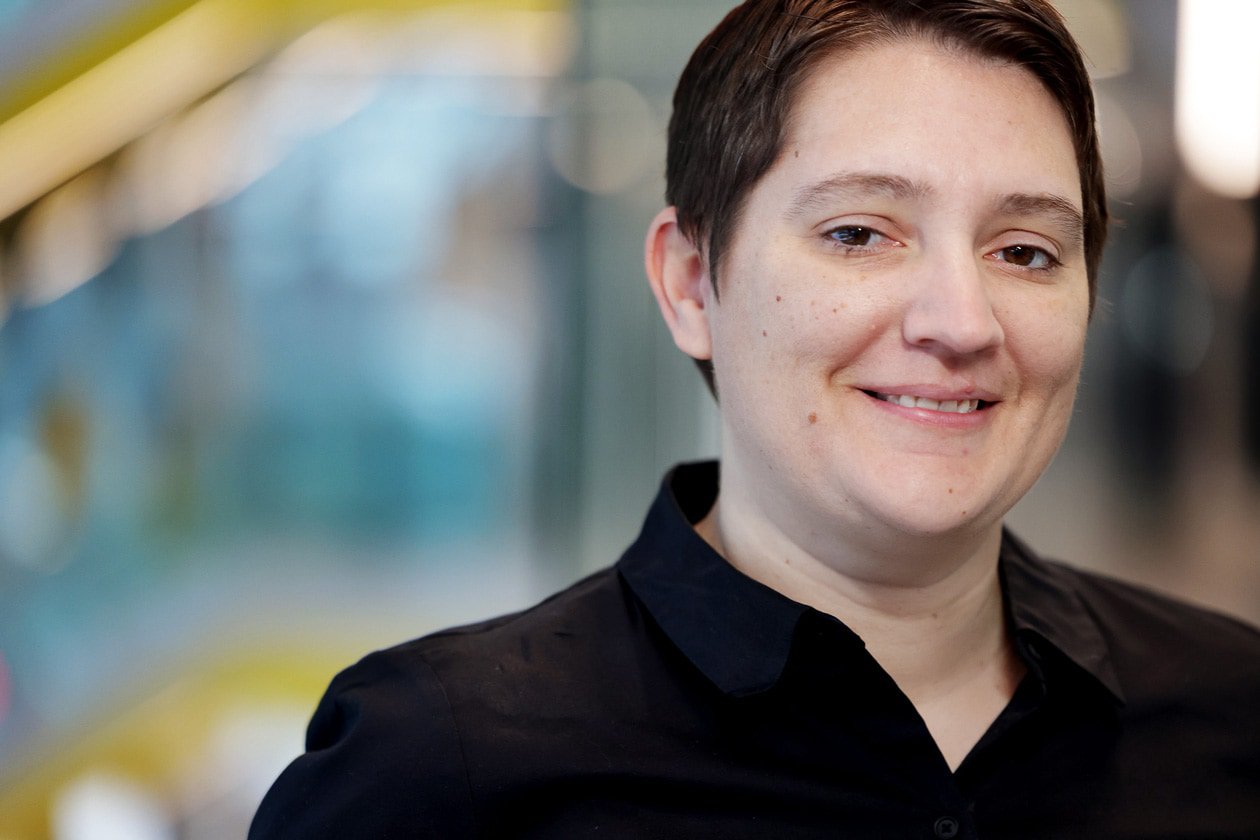
Can you hear the music: Q&A with Ann Jeffers
The CEE professor discusses her new memoir and her tortured path to where she is today.

The CEE professor discusses her new memoir and her tortured path to where she is today.
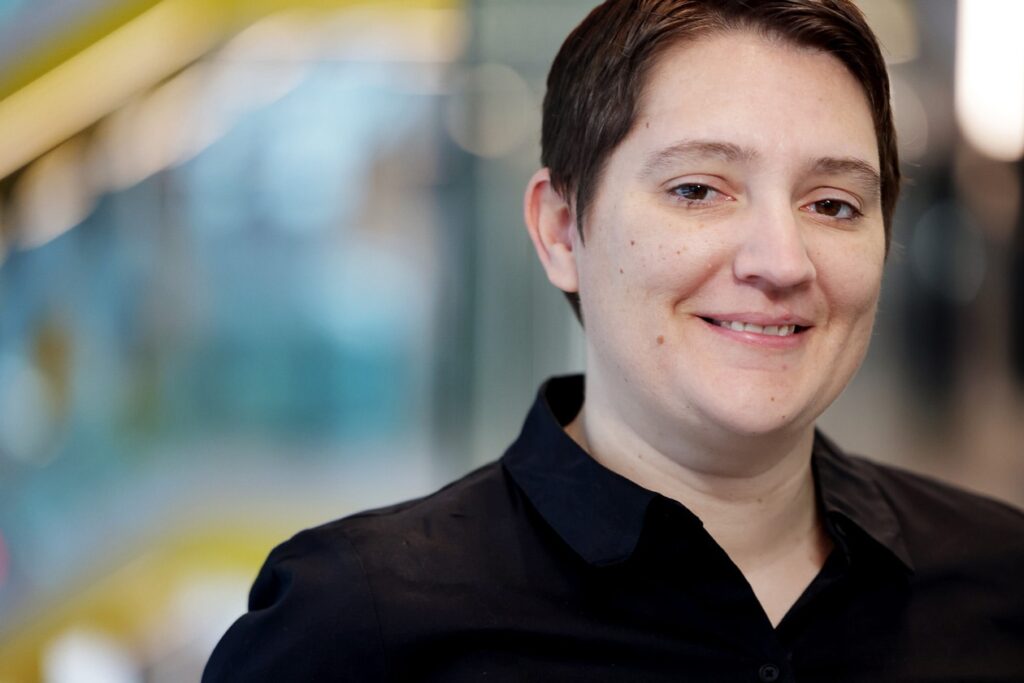
The memoir of Ann Jeffers, an associate professor of civil and environmental engineering at the University of Michigan was released today. Titled Can You Hear the Music: My Journey Through Madness, the book details Jeffers’ struggle with bipolar disorder and psychotic episodes while trying to establish her career and family.
I’ve had symptoms of bipolar disorder, even symptoms of psychosis, since I was a teenager. Back then, I didn’t know what it was. There were instances where I felt paranoia, but they came and went. I had mood swings and was depressed a lot as a teenager, but I figured that was just par for the course for being a kid at that age.
My depression came with a sense of guilt. I always struggled with this idea: “How can I have depression when my life is so perfect”’ I had two parents who loved me. We never struggled for anything, and I always knew there were people who had it worse. I never understood the reasoning behind it.
The bipolar symptoms just never went away, and they ebbed and flowed as I made my way through college.
Sometimes when I’m having a manic episode, I’ll hear and see things that aren’t there. Often, I’ll hear music—I’ll be laying in bed and hear this music that is so beautiful. But I can’t share it with anybody. It’s both a bizarre and beautiful thing.
There were three different incidents that happened while I was there. In 2006, an escaped prisoner got loose near the campus on the first day of classes and killed two people. Toward the end of that same school year, there was the shooting that took 32 lives. I wasn’t on campus that day, but it took place in my space. And then, in 2009 when I was actively interviewing for faculty positions, a graduate student killed another student on campus.
The culmination of these horrible things was that I developed post-traumatic stress disorder (PTSD). But just like when I was a teen dealing with depression, I felt guilty—like I wasn’t entitled to it. Other people had been much closer to those incidents, so I didn’t feel entitled to any sort of diagnosis.
But it’s all relevant to our students today. We recently had the shootings in Oxford, MI and at Michigan State University. We have students who know people who go to school there or they have been on that campus themselves. And people need to understand that their feelings are valid. However you react to these traumas, it’s perfectly valid.
That’s a message that I’ve been trying to get out there because I wish someone had told me that I was worthy of help.
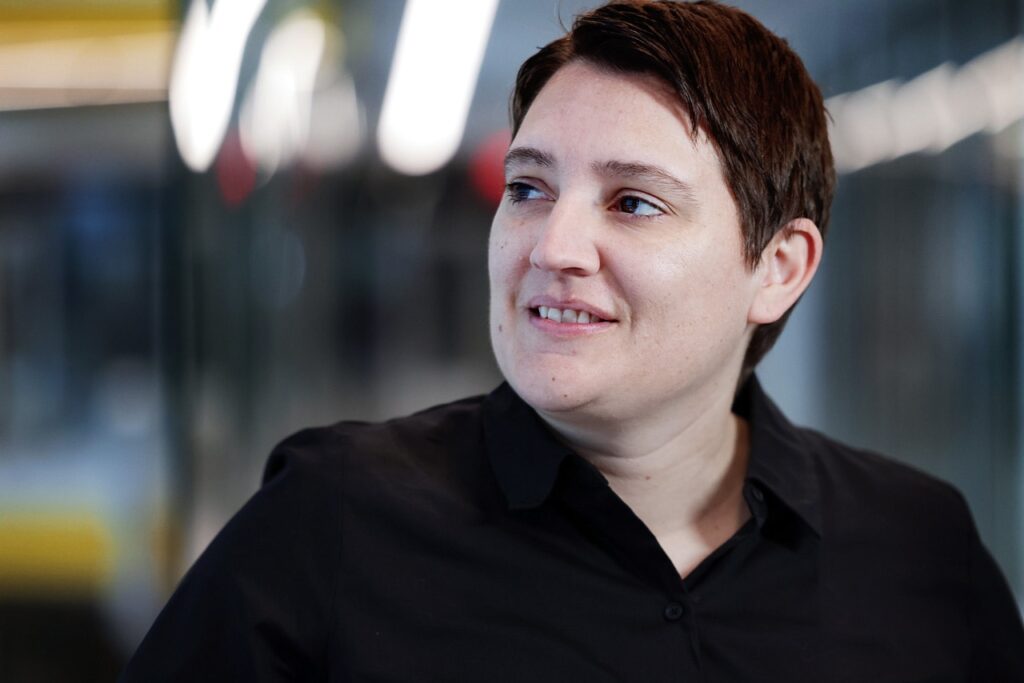
I started as an assistant professor at Michigan in 2009. In 2013, my wife and I were trying to get pregnant with a second child. I was going through fertility treatments and, combined with other stresses, my moods were all over the place. I started experiencing psychosis, and my wife encouraged me to get some help.
I started going to therapy and taking medications. It took about a year to stabilize and a few years before I became fully functional again. After I recovered, my wife and I became licensed foster parents and we ended up adopting two kids through the foster care system.
I’m in therapy weekly and I take a number of medications. I take a mood stabilizer, an antidepressant, and an antipsychotic medication.
There was a lot of trial and error with the medications over that first year of treatment. I tried six to eight different antipsychotic medications before I found one that actually curbed the psychosis. Those come with heavy side effects; being tired all the time, experiencing brain fog, and having little energy to do anything. But I kept at it because I figured something had to help. And, where I’m at now, I feel we’ve found a good level of medications.
At this point in time, I am productive at work and home, and I’m generally quite happy.
My initial work as a faculty member at U-M looked at fire resistance in structures—developing computer models to simulate how structures respond in realistic fire events. Much of it was related to advanced finite element analysis and multi-physics simulation.
I became seriously ill in 2013, and in the following years as I struggled with my health, my work in that area began to taper off. By 2019, that research area had almost completely dried up, so I took a step back.
This was a period where NSF had a moratorium on structural fire-related research, so there was no funding coming from that direction. When I was better and able to focus on research again, I said ‘You know what, if I’m going to restart my research program, I’m going to make sure my work is going to have a real impact.
That’s when I pivoted to looking at structures under wildfire exposure. And it turned out to be a fit with NSF’s Boosting Research Ideas for Transformative and Equitable Advances in Engineering (BRITE) program. BRITE is a mid-career grant intended to help relaunch career faculty after an extended break.
There is no shame in having mental illness. People need to realize it’s an illness like any other; that it’s treatable and that there is hope for those dealing with it.
I wrote the book that I wish I could have read when I was most ill—when I was trying to understand what bipolar disorder and psychosis were. I read a lot of memoirs about other peoples’ experiences, but I found them lacking. They were light on what the true experience of having this condition really is and what it means. The lack of finding another experience that resembled my own alienated me, made me feel more or less alone.
I started writing as part of my healing process. Initially, I didn’t know where this project was going to go. Writing was just cathartic. I think what sets me apart from other authors is that I don’t really shy away from the more difficult aspects of the illness. I’m not afraid to talk about links like the stigma that comes with mental illness.
In the end I decided, if I was going to do this, I wasn’t going to hold back anything.
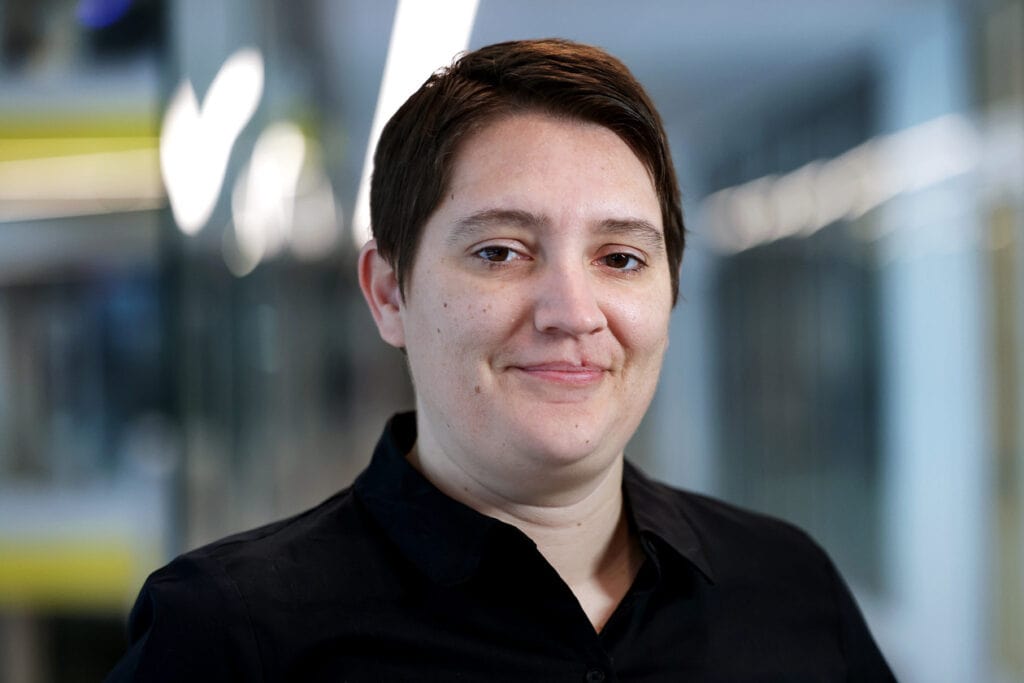
These things are relevant in academia, perhaps especially relevant in engineering. And that’s why I think the culture needs to change—to move from the cutthroat atmosphere that universities can create to something that’s more supportive.
It’s related to work I’m doing with the Rackham Committee on Graduate Student Mental Health and Well Being where we’re trying to change the culture in academia. Things like timed or closed book exams are examples that are common in engineering. What is their purpose?
There are certain things we do because we think it introduces some level of rigor. But the reality is that people aren’t going to be asked to do this in real life. No one says you need to design a bridge girder in sixty minutes or less and without access to resources. And that false environment creates a lot of stress for students who may be dealing with conditions like anxiety that we can’t see.
As faculty, we need to sit down and have an honest conversation about what we test our students on and how we test them. I think we, as a faculty, should reverse engineer assessment based on what we truly want our students to get out of it and do it through a lens of well-being. Not only will that benefit students with mental illness, it will benefit all students.
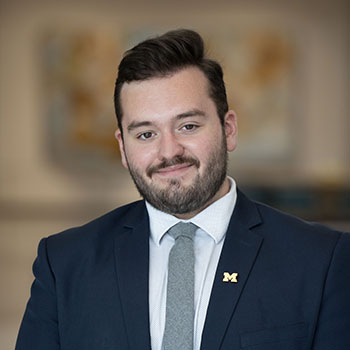
Marketing Communications Specialist
Department of Civil and Environmental Engineering